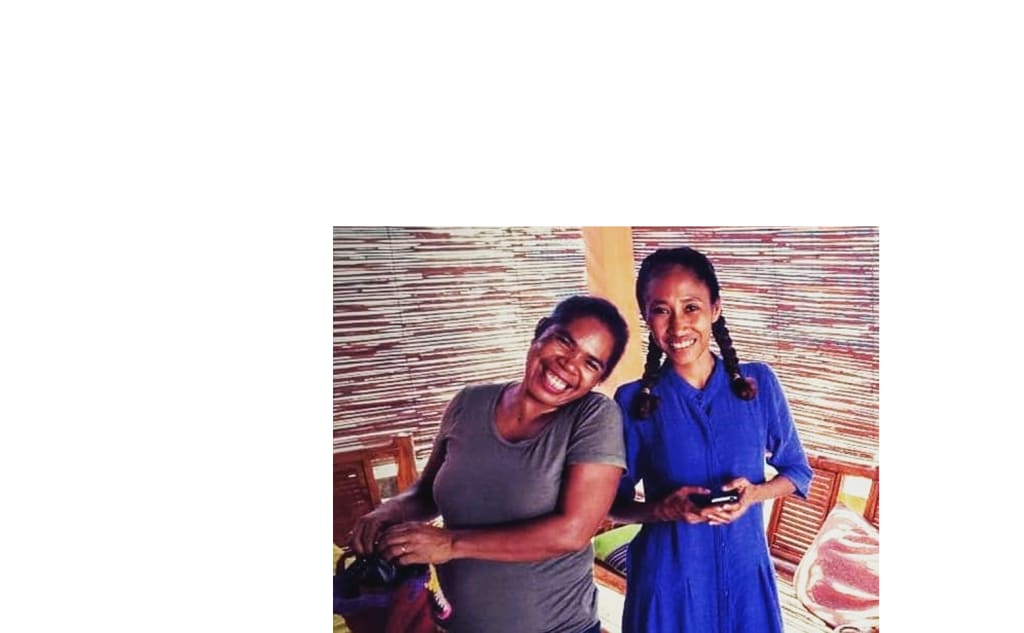
You awake with the sun around 5am. In the single bed you most often must share you push aside some token family member, clamber over their sweaty frame, and make your way to the adjoining living area of your family home. The concrete floor and walls and the low corrugated iron roof have never seen a lick of paint that would expand its drab color spectrum beyond that of ‘Institution Grey’. The only window at least has glass which you’re grateful for despite it being heavily tinted, as became tradition from the days of rebellion against the Indonesians. There’s little enlivening this central space except a scatter of plastic furnishings, a much prized television and curtains across internal doorways.
You’ve no illusions. You’re family aren’t wealthy but not as poor as some. In Dili, the capital of Timor-Leste (East Timor), many still live a far more basic existence, often squatting on government land, waiting patiently for notice to vacate with the hope they’ll be compensated. You’re lucky for where you live. You understand this. You have a shower cubicle which runs off a small pump that plugs in when required. And now you’re even more fortunate because Fatuhada, being a central area of Dili, has government water pipes running along the main footpath offering water which is relatively clean to look at and relatively devoid of amoebic dysentery. For many in Dili and surrounding areas, where the push to modernise was not met with a reasonable awareness of sanitation, the artesian water they rely upon is not only sporadic in availability but also smelly, dirty and dangerous to ingest. You are lucky for having this relatively clean water. You know this.
If you survive to adulthood in Timor-Leste there’s a good chance you have a strong resilience to disease. “We should market this”, you think amusingly to yourself as you splash water on your face from a large plastic bucket outside the shower cubicle. “Husbands and wives available for suitably short statured foreigners”,you think. “Marry into our robust gene pool! What we generally lack in height we make up for in resilience.” And so very true, you reflect. Our resilience, our dignity, our spiritedness, our faith… these are the qualities that keep this new nation, still struggling to find its feet after reclaiming independence in 1999, from crumbling in a heap of insurmountable despair.
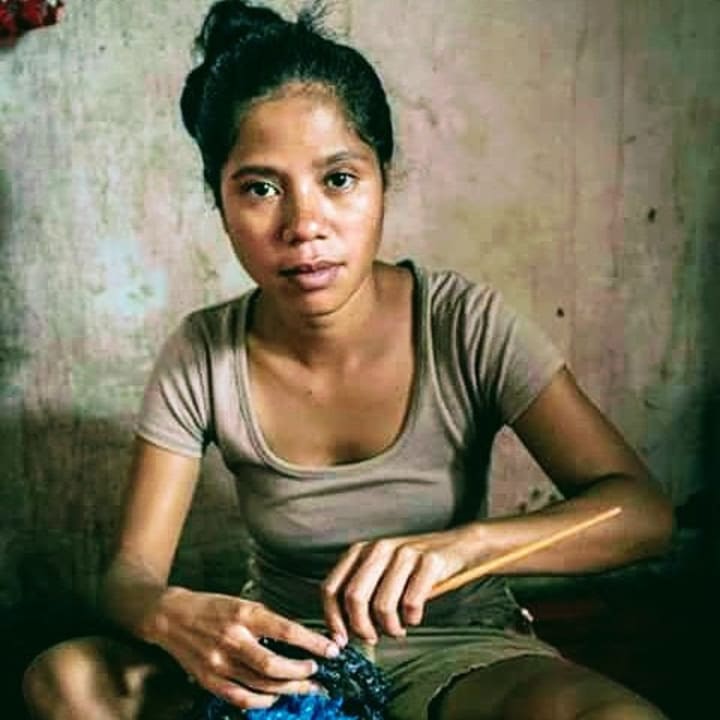
Like many others in the capital, you work to help support your family; your parents, siblings, uncles, aunts, and a multitude of resulting children. You work so that you all have enough to eat, can access medical assistance when required and can obtain an education through the Catholic run school system. You work so that family obligations; baptisms, weddings and burials, according to both Catholic and traditional customs, can be honored. To not contribute to a family member’s funeral expenses, for instance, would bring great shame upon your entire family. And there is nothing more shameful than shame. You know this. You are lucky that such a fate has so far not befallen you. Through careful budgeting and a little Timorese-style moving and shaking your family has kept its dignity against all odds. Children have shoes, everybody has clean clothes, nobody goes without a basic education, and family obligations are met, no matter what. You work so that others can have opportunity. So that your little brother can one day graduate from university as a science teacher and can then, also, contribute to supporting the family, alleviating the burden somewhat that currently falls upon your tiny shoulders and those of several other family members. You work so the family can send money and supplies back to relatives in the districts.
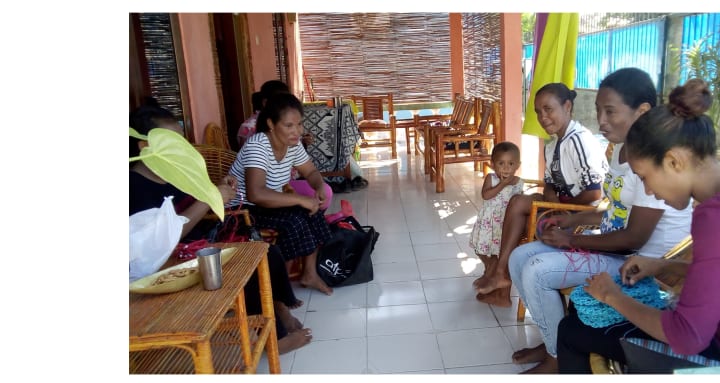
Everybody knows employment opportunities in Dili and the other historic coastal town of Baucau are still available only to around 20% of their population. That is as good as it gets in poor Timor-Leste, continuing to celebrate even small successes in a world where wealthy locals and foreigners alike secretly wish for your continued reliance and compliance. There are resources in those hills. Everybody’s heard the whispers. Everybody fears for the future where families sitting on traditional land out in the districts sell up, out of desperation, for what amounts to next to nothing. Everybody fears for the times ahead when mining companies with little regard for clean water, soil and air, begin to take over entire districts and offer only work that is dangerous and poorly paid. But for now you are lucky for you have work. With work comes money and with money comes opportunity. You know this.
You wander outside the back of your family home and scrunch up a couple of small soft plastic bags you’ve retrieved from a basket used to hold yard sweepings. Maybe the bags carried tofu or other produce from local markets or from a street vendor with his heavy, makeshift wooden cart covered in swinging plastic bags of grains and rice and large fresh bunches of seasonal vegetables such as kankon, water cress, cassava leaf and amaranth. Or maybe they’d contained local street food such as the battered and deep fried tempe or banana slices you’re fond of. “All the better”, you think, as you place the bags in the fireplace used for household cooking, knowing the residual grease will accelerate their burning.
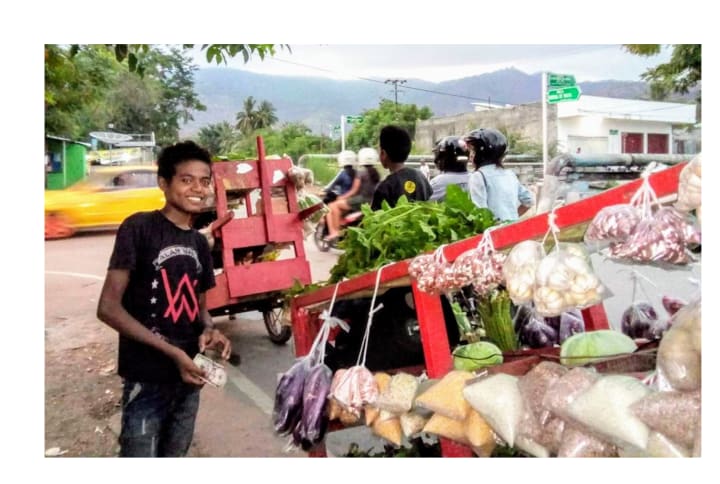
The soft plastic and yesterday’s lingering coals smolder and give off a rank smoke that you don't breathe in. But the plastic is quickly consumed by flames over which you place a few small pieces of wood and a pan with a little water. Roughly, you peel and wash cassava and sweet potato and add them in pieces to the pot. Breakfast is often a ‘fend for yourself’ arrangement and you’ve little time to cook for others, but there’ll be enough left over for your younger brother (and aspiring science teacher) when he arises around 8am. He is lucky, he’s been assigned the afternoon session for his final year of schooling, classes being divided into 7am to 11am or 1pm to 5pm sessions, Monday to Saturday. In this way, classrooms can be turned over twice each day, making best use of limited facilities. You are both lucky to receive such an education. You know this.
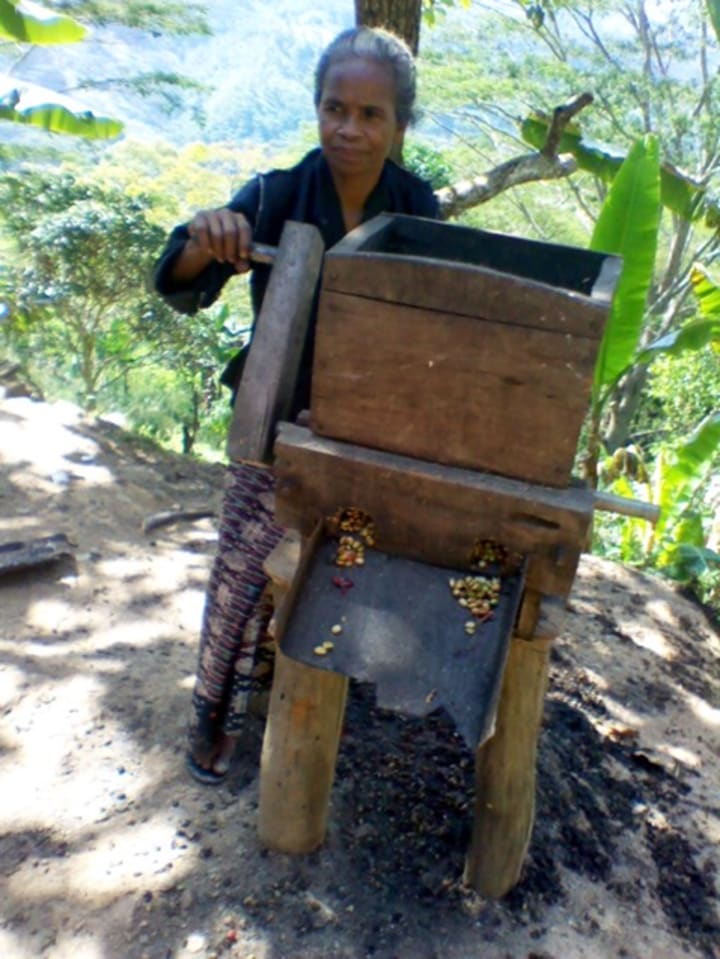
You’re also lucky to have found work that remains fairly paid and flexible. As a female from a poor background, education beyond high school is rarely encouraged, often seen as a pointless investment by the family. Everybody understands that nepotism and a strong patriarchal tradition assures jobs go first to the favored; the wealthy families take the cream, the men take what is left. Even with the right qualifications, grades and contacts your opportunities in Timor-Leste are limited mostly to waitressing, nursing, or domestic help for foreigners. It’s expected you’ll do as your 4 sisters have; marry, have children, struggle, die. So you’re lucky that your work has paid well enough for you to support your own tertiary studies while still contributing to the needs of the family. From this advanced education you obtained a more worldly view of life and technical adeptness which assisted in securing you the position of “Little Boss Lady” within the training and employment initiative you’ve remained involved with since you were 18. Fate had you cross paths with your mentor and employer. You are lucky. You know this.
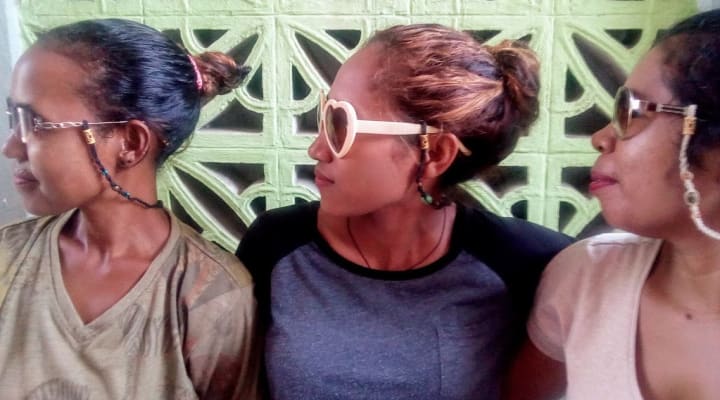
But I, alin mana (little sister), am luckier still. I’ve had the honor of training, mentoring, employing and knowing you for almost a decade now. I’ve watched you grow wiser, learning to discern between those in your country merely for personal gain and those who’re here with deeper intent. I’ve watched you grow stronger. Strong enough to withstand family pressures to ‘take what you can get’, without considering long-term opportunities and the consequences of actions forged from desperation and dire poverty. This journey along-side of you has taken patience, compassion and time. It has brought out, in me, the very best and the very worst. And it has, on occasion, humbled me deeply. It takes years to gain insight into another culture. It takes genuine regard to gain an insight into the world of another individual. And it takes willpower to shift cultural bias and assumptions from both sides, to gain mutual respect and form a rapport that, I believe, we now recognize as friendship.
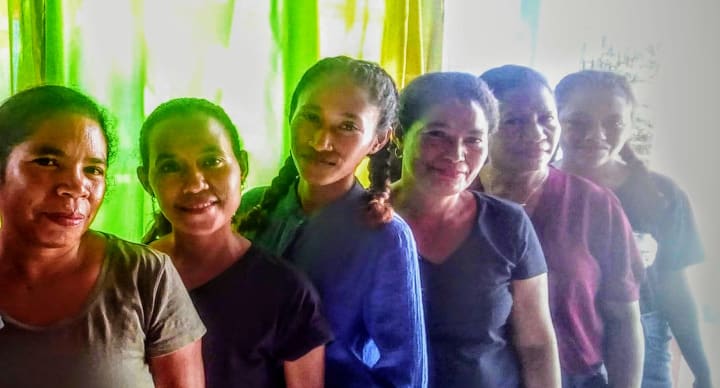
I honor you Timor feto. Juvita Da Silva, I honor your strength, your grace and your tenacity. I thank you Timor feto. I thank you for your patience, your good humor, and your willingness to grow alongside of me. I thank you for sharing with me your culture, your stories and your nation. I am lucky to know you. I know this.
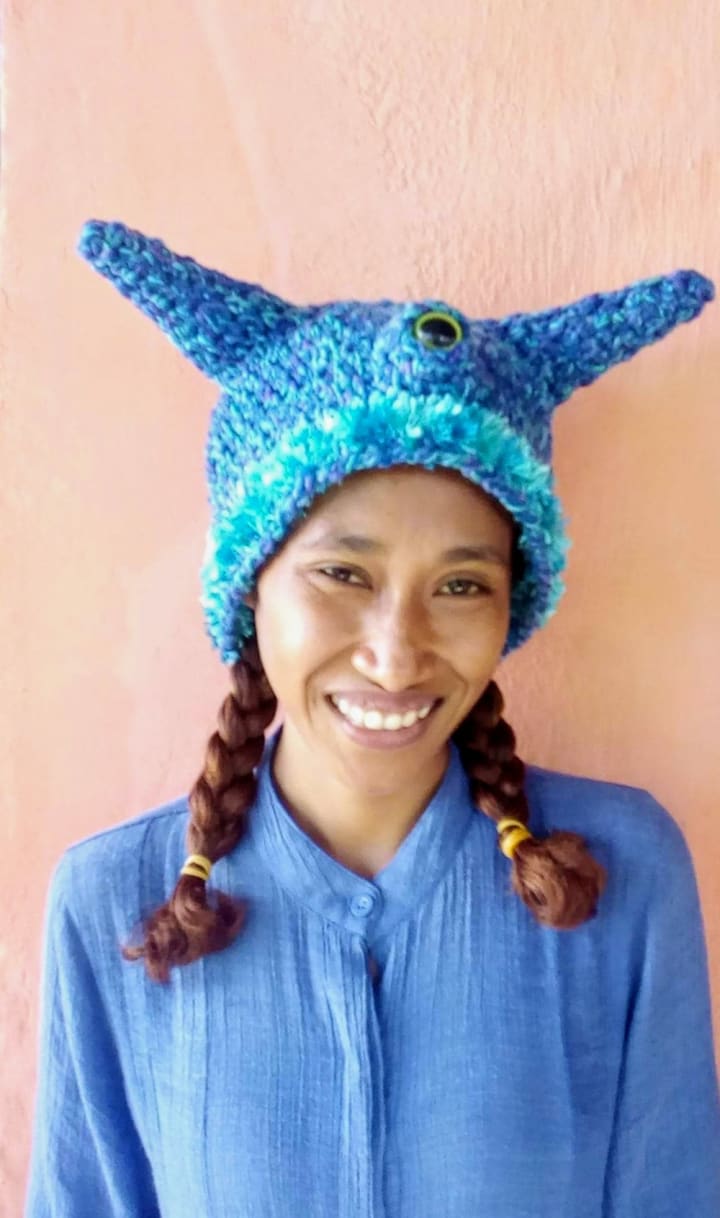
Viva (Long Live) Timor-Leste! Viva! You are the daughter I’ll never have, the culture that doesn’t want me and the nation in which I shall always remain a stranger. And yet, in your presence, I’ve never felt more embraced.
Viva Timor feto, Viva.
About the Creator
Andrea J Mandal
Extreme idealism is my sport, hobby and passion.
Since 2011 I've been self-funding a small ethical initiative called Gecko Beach in Dili, East Timor.. It's challenging, on occasions humbling, and, very often, deeply rewarding.
I love it!






Comments
There are no comments for this story
Be the first to respond and start the conversation.